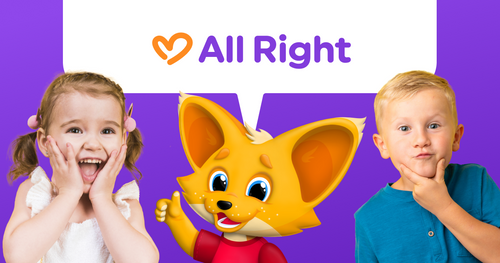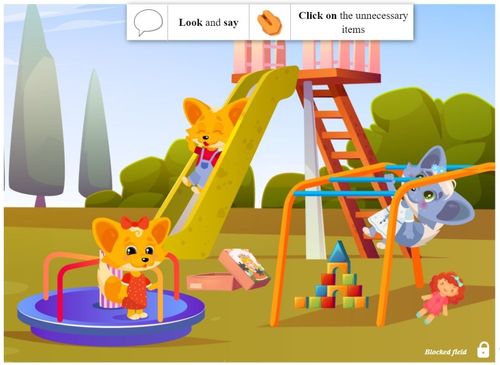Language is a crucial aspect of a child's development. Learning and using English in everyday situations can significantly enhance a child's language skills and enrich their vocabulary.
In this article, we will share practical tips for parents that will help kids learn English at home.
Practical tips for successful English language learning
Daily communication in English
Strive to communicate in English as often as possible at home. Even if it's just short conversations about what you're doing or what's happening around you. Share stories, play games, and discuss daily events.
💡Don't be afraid to make mistakes when speaking English. The key is practice. The more you immerse yourself and your kid in a language environment, the faster you can improve your communication skills.
Learning words through songs
Regularly listen to English songs and memorize the lyrics. Feel free to sing together, study the texts, and analyze them.
💡 Remember that music compositions don't always adhere to grammatical language rules. Artists often use literary techniques, wordplay, and poetic phrases to achieve expressiveness and emotional depth, which can lead to grammatical inaccuracies.
Shared reading
Read English fairy tales and books to your child. Start with simple illustrated books and gradually progress to more complex ones.
💡 Reading books in English is a beautiful way to help your child learn new words and phrases. You can also ask them to tell you about what you've read.
English language through play
Play games that contribute to learning English. There are numerous English-language games you can play with your child. It could be anything from creative games like “Guess What It Is?” to more classic games like “Name a Word That Starts with the Letter 'B'”.
💡 Games help children learn new English vocabulary in a safe environment. When children play, they don't focus on syntax and grammar, making it easier to memorize new words and phrases.
Using videos and cartoons
Watch English-language cartoons and videos together with your child. Choose cartoons and videos that interest them. It's better to start with short cartoons or videos to prevent the child from getting tired of watching.
💡 The questions you ask after watching can help engage with your child. Ask them about what they saw in the video, the main events, and who participated in the dialogues. It encourages the child to think actively and share their own impressions.
Role-playing games
Encourage your child to play role-playing games where they can use English. Children can take on various roles, such as teachers, students, doctors, patients, etc. It helps them practice using new words and phrases in different situations.
💡 Here are a few tips to make this process even more effective:
Create an atmosphere of excitement: Explain to your child how role-playing games help improve their English language skills and expand their vocabulary.
Develop themed scenarios: Choose different themes for role-playing games, such as a doctor's visit, a school lesson, a trip to another country, and more.
Provide role-playing props: When playing the role of a teacher, your child can use a board and markers. For the role of a doctor, they might need medical instruments. It adds realism to the game and helps your child better immerse themselves in the role.
Communication with peers
Encourage your child to communicate with other children. When a child interacts with peers, they can practice their English language skills in real life. You can encourage your child to engage with other children by enrolling them in English-speaking clubs, classes, or events.
💡 Participating in speaking clubs or events organized by All Right will allow your child to communicate with peers from different countries and improve their language skills.
Using the English language in a child's everyday life
By incorporating language into play, routine activities, and enjoyable moments, parents contribute to developing language skills.
However, it's important to remember that language learning is a gradual process that requires time and patience. Children may learn at a slower pace. Stay calm if your child needs help understanding everything immediately; keep speaking English with them; over time, they will surprise you with their progress.
If you wish to help your child learn the language more quickly, you always have the option to try learning with All Right, which will be effective and engaging right from the first lesson 💜









